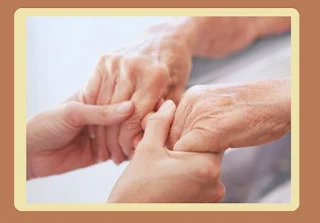Gynaecologic problems in elderly women
As women enter into
elderly period, they experience myriads of changes in their physical and mental
state.
Women may encounter
with severe physical problems during old age due to low literacy rate, lack of
awareness of screening programmes and lack of health education, and non-availability
of medical facility. Majority of elderly females visit health clinic or hospital
when disease is symptomatic. It is also observed that ageing women normally do
not seek gynaecological advice as compared to other age groups in Indian
culture. One strong basis of restricting themselves to get care from doctor is
that overall gynaecological conditions may become less frequent to old women
once they are menopausal naturally.
Elderly women must
know their body chemistry to live healthy and energetic life. The most commonly
observed gynaecologic problems of geriatric women are vulvovaginal
inflammation, pelvic organ prolapse, postmenopausal bleeding, and alterations
in bladder function. In the context of India, the gamut of gynaecological
disorders differs from developed countries because there are no screening
programmes for early detection of geriatric issues.
-
Vulvovaginitis
is a condition that results in inflammation of the vulva and vagina. Vulvovaginal
inflammation may show range of symptoms like itching, discharge, soreness, and
pain during urination, pain during intercourse, or minor cases of bleeding or
spotting. Vaginitis is very common in elderly age.
-
Pelvic
organ prolapse is most common gynaecological disorder in elderly women after 60
years. It can cause incomplete bladder emptying or hydronephrosis and renal
failure. Women may grip under pelvic organ prolapse when the pelvic floor
becomes weak or damaged and one or more pelvic structures drop from their
natural positions into or even outside of the vaginal canal. Several structures
can be involved, such as the uterus, bladder, small bowel, rectum or the vagina
itself. This medical condition is caused due to damage in the tissues that
support the pelvic organs. This damage is caused by suffering of childbirth. Other
risk factors include obesity, chronic constipation, lung diseases that result
in a chronic cough, and menopause. For the treatment of this disorder, doctors
may offer advice that can help prevent the prolapse from becoming worse like
losing weight, quitting smoking, and avoiding lifting heavy objects.
-
Postmenopausal
bleeding: It is not very serious condition but in some cases, it can cause
cancer. The most common causes of having Postmenopausal bleeding are inflammation
and thinning of the vaginal lining (atrophic vaginitis) or womb lining
(endometrial atrophy) due to lower oestrogen levels, cervical or womb polyps, a
thickened womb lining. Therefore it is recommended to see general physicians
when women suffer from this disorder.
-
Ovarian
cancer: Ovarian cancer is a severe and prevalent ailment that affects elderly
women. Women grip under ovarian cancer may complain discomfort and pain, abnormal bowel
movements, digestive problems, feelings of being full despite not eating a full
meal, nausea, fatigue, pain in the lower back, and pain in the legs. It is very
frustrating to older females. Most common treatments for ovarian cancer are
surgery and chemotherapy. Radiation therapy may also be used in some cases.
Important note: This article is created harbouring holy
attitude and for the awareness of elderly women to understand their medical problems.
All medical terms mentioned in this piece of writing are just for educational
purposes.
About writer:
International research writer
PG in Psychology


Comments
Post a Comment